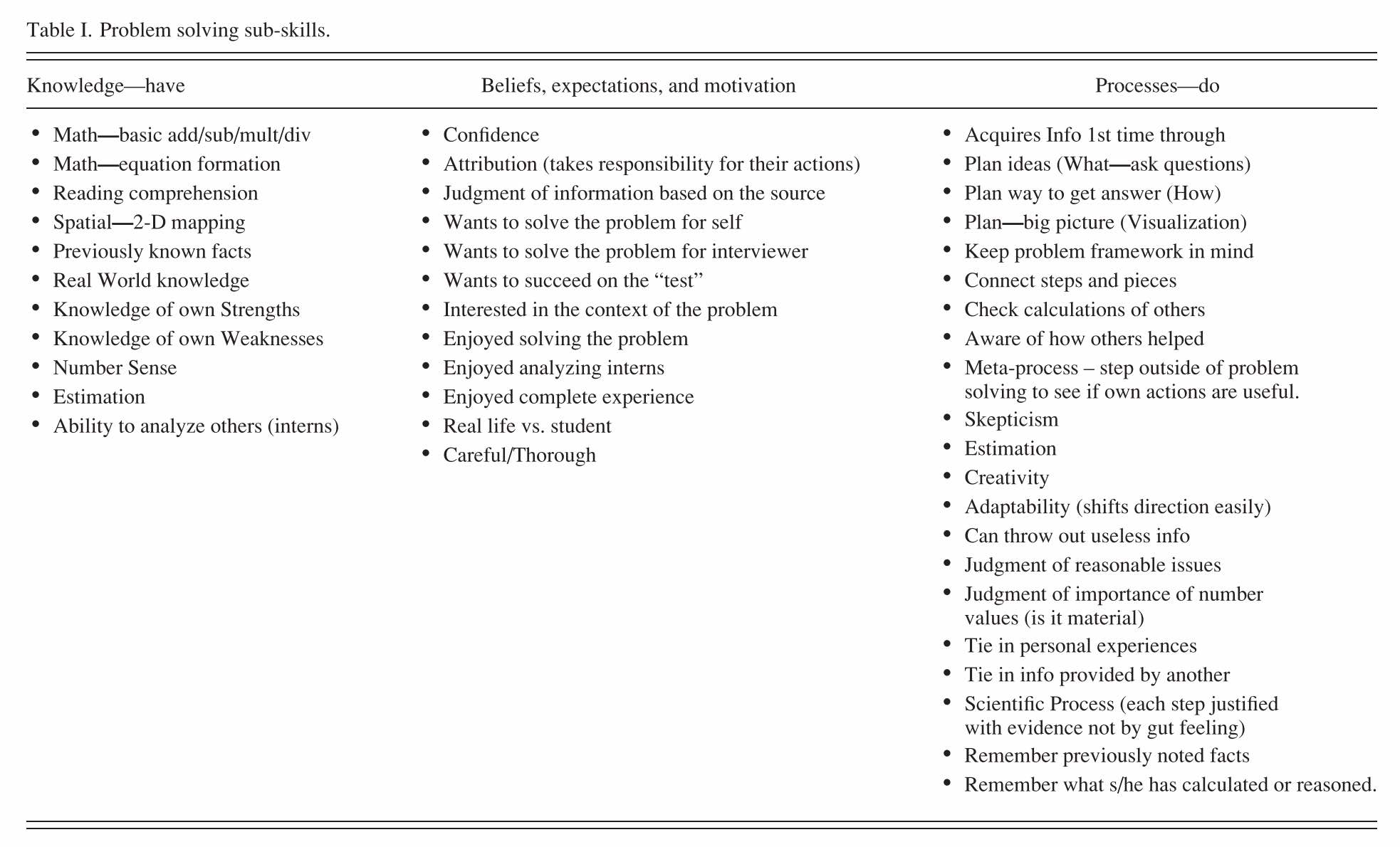Colorado Assessment of Problem Solving (CAPS)
Developed by Wendy Adams
| Purpose | To assess students’ strengths and weaknesses on 44 different components of the problem-solving process, using a general problem solving situation that is not tied to any specific discipline. |
|---|---|
| Format | Rubric |
| Duration | 60-120 min |
| Focus | Problem solving |
| Level | Graduate, Upper-level, Intermediate, Intro college, High school, Middle school |
Examples
Problem solving sub-skills assessed on the CAPS from Adams and Wieman 2015.




